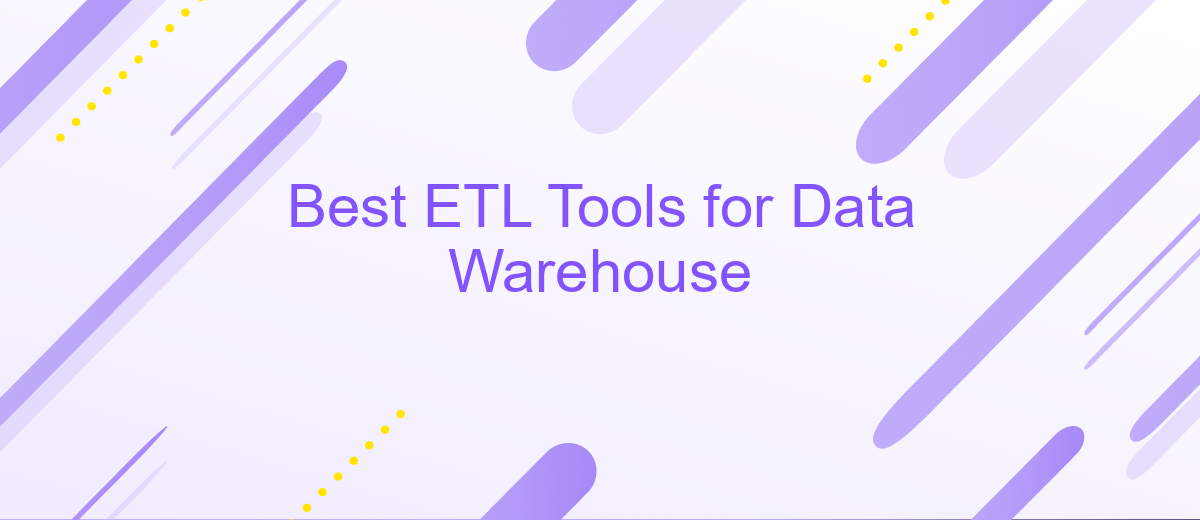Best ETL Tools for Data Warehouse
Choosing the right ETL (Extract, Transform, Load) tool is crucial for the success of any data warehouse project. With numerous options available, it can be challenging to identify the best fit for your specific needs. This article explores the top ETL tools on the market, evaluating their features, performance, and usability to help you make an informed decision.
Introduction
In today’s data-driven world, efficient ETL (Extract, Transform, Load) tools are essential for managing and optimizing data warehouses. These tools streamline the process of extracting data from various sources, transforming it into a suitable format, and loading it into a data warehouse for analysis and reporting.
- Automated data extraction from multiple sources
- Data transformation and cleaning capabilities
- Seamless integration with data warehouses
- Scalability to handle large volumes of data
Choosing the right ETL tool can significantly impact the efficiency and accuracy of your data processing workflows. Tools like ApiX-Drive offer robust integration solutions, allowing businesses to automate data flows between different applications and systems without the need for extensive coding. This ensures that your data warehouse is always up-to-date, enabling real-time insights and informed decision-making.
Comparison Table

When evaluating ETL tools for your data warehouse, it's essential to consider various factors such as ease of use, scalability, and integration capabilities. Tools like Talend and Informatica offer robust features for complex data transformations, while Apache Nifi provides a more flexible, open-source solution. On the other hand, cloud-based tools like AWS Glue and Google Dataflow are great for seamless integration with cloud services and scalability.
Another important aspect is the ability to integrate with other services easily. For instance, ApiX-Drive can be a valuable addition to your ETL toolkit, enabling effortless integration with multiple platforms and automating data workflows. This can significantly reduce the time and effort required to set up and maintain data pipelines. Therefore, when choosing an ETL tool, consider both the core features and the ease of integration with other services to ensure a comprehensive and efficient data management solution.
Detailed Reviews

When it comes to choosing the best ETL tools for your data warehouse, it is crucial to consider various factors such as ease of use, scalability, and integration capabilities. Here, we provide detailed reviews of some of the top ETL tools available in the market.
- Informatica PowerCenter: Known for its robust data integration capabilities, Informatica PowerCenter offers a user-friendly interface and supports a wide range of data sources.
- Talend: This open-source ETL tool provides extensive data integration and transformation features, making it a popular choice among developers.
- ApiX-Drive: Specializing in automating data workflows, ApiX-Drive simplifies the process of integrating various services and applications, ensuring seamless data transfer.
- Microsoft SQL Server Integration Services (SSIS): A powerful ETL tool that integrates well with other Microsoft products, SSIS is ideal for organizations already using the Microsoft ecosystem.
- Apache Nifi: This open-source tool is highly flexible and supports real-time data processing, making it suitable for dynamic data environments.
Each of these ETL tools has its unique strengths, making them suitable for different business needs. Whether you prioritize ease of use, extensive integration capabilities, or real-time data processing, there is an ETL tool on this list that can meet your requirements. Consider your specific needs and evaluate these options to make an informed decision.
Selection Criteria

When selecting an ETL tool for your data warehouse, it is essential to consider several key factors to ensure the tool meets your specific needs. The right tool should streamline the data integration process, enhance data quality, and provide robust performance.
First, evaluate the tool's compatibility with your existing data sources and systems. It should support a wide range of data formats and seamlessly integrate with your current infrastructure. Additionally, consider the ease of use and learning curve associated with the tool, as this will impact the efficiency of your team.
- Compatibility with data sources
- Ease of use and learning curve
- Scalability and performance
- Data transformation and cleansing capabilities
- Cost and licensing options
Another crucial aspect is the tool's ability to handle complex data transformations and cleansing tasks. Tools like ApiX-Drive can be particularly useful, as they offer seamless integration capabilities and automate data workflows. Lastly, consider the cost and licensing options to ensure the tool fits within your budget while providing the necessary features.
Conclusion
Choosing the best ETL tool for your data warehouse is a critical decision that can significantly impact your data management strategy. Each tool offers unique features and capabilities, from data integration and transformation to scheduling and monitoring. It's essential to evaluate your specific needs, such as data volume, complexity, and budget, to make an informed choice. Tools like Apache NiFi, Talend, and Microsoft SSIS are popular options that cater to various requirements, ensuring efficient and reliable data processing.
Additionally, integrating these tools with other services can enhance their functionality and streamline workflows. For example, ApiX-Drive provides a seamless way to connect different applications and automate data transfers without the need for extensive coding. By leveraging such integration platforms, businesses can optimize their ETL processes, reduce manual efforts, and ensure data consistency across systems. Ultimately, the right ETL tool, combined with effective integration solutions, can empower organizations to harness their data's full potential and drive informed decision-making.
FAQ
What are some of the best ETL tools for data warehousing?
How do I choose the right ETL tool for my data warehouse?
Can ETL tools handle real-time data processing?
What are the advantages of using ETL tools for data warehousing?
How can I automate and integrate my ETL processes more efficiently?
Apix-Drive will help optimize business processes, save you from a lot of routine tasks and unnecessary costs for automation, attracting additional specialists. Try setting up a free test connection with ApiX-Drive and see for yourself. Now you have to think about where to invest the freed time and money!

